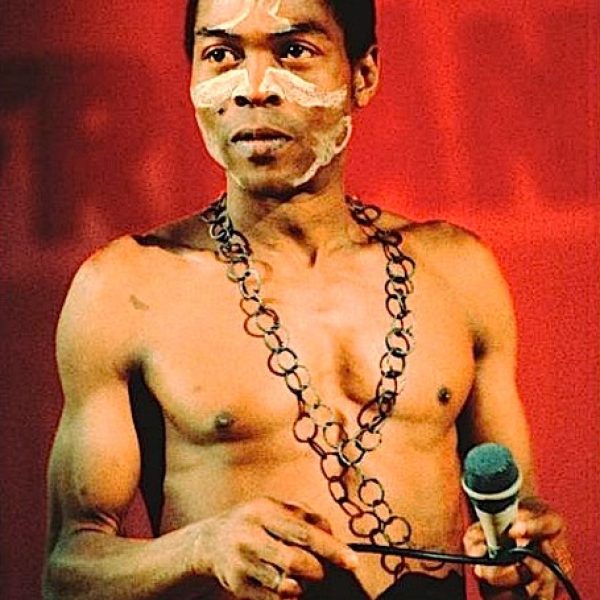Fela Anikulapo Kuti wasn’t just a musician—he was a movement. His sound was thunderous, his voice unapologetic, and his presence larger than life. With Afrobeat as his weapon, Fela became a revolutionary who challenged Nigeria’s military regime, colonial legacies, and the silence of the oppressed.
This is the story of how Fela birthed Afrobeat—not just a genre, but a protest, a philosophy, and a pan-African cultural force.
Afrobeat: The Sound of Resistance
Afrobeat is a fusion of West African highlife, traditional Yoruba rhythms, jazz, funk, and soul. Unlike the fast-paced dance rhythms of highlife or the instrumental focus of jazz, Afrobeat was percussive, hypnotic, and deliberately long—songs could stretch beyond 15 minutes, creating space for storytelling, improvisation, and political commentary.
What made Afrobeat revolutionary wasn't just its musical makeup—it was its message. Fela used the genre to speak truth to power.
Fela’s Musical Journey: From London to Lagos
Born in 1938 in Abeokuta, Nigeria, Fela was raised in a politically active family. His mother, Funmilayo Ransome-Kuti, was a fearless women’s rights activist, and his father a respected clergyman and educator.
In the late 1950s, Fela studied music in London, training as a classical musician. In the 1960s, he spent time in the United States, where he encountered the civil rights and Black Power movements. Influenced by artists like James Brown and thinkers like Malcolm X and Angela Davis, Fela returned to Nigeria not just as a musician—but as a missionary for African consciousness.
Kalakuta Republic and the Shrine
In Lagos, Fela built his creative fortress: the Kalakuta Republic, a commune and recording studio that housed his band, family, and followers. He also created the Afrika Shrine, a venue where he performed his politically charged music weekly.
Kalakuta was more than a home—it was a defiant statement of independence from Nigeria’s corrupt elite. Fela declared it a sovereign state. As a result, it became a constant target for state violence.
In 1977, soldiers raided Kalakuta, beating Fela and throwing his elderly mother out of a window (she later died from her injuries). The attack only strengthened Fela’s resolve. He responded with the track “Coffin for Head of State”, where he symbolically carried his mother’s coffin to the gates of Nigeria’s military headquarters.
Songs That Spoke Truth
Fela’s discography reads like a catalogue of resistance. Each track dissected power, hypocrisy, and the colonial hangover.
🎶 Zombie (1976)
A scathing critique of the Nigerian military, likening soldiers to mindless zombies who follow orders blindly.
🎶 Water No Get Enemy
An allegorical tune about the resilience and fluidity of truth, and the futility of fighting nature.
🎶 Sorrow, Tears and Blood
A haunting lament on the reality of African repression—"Them leave sorrow, tears and blood / Their regular trademark."
🎶 ITT (International Thief Thief)
A fearless takedown of multinational corporations and their role in Africa’s economic exploitation.
No one was spared. Fela called out dictators, foreign powers, and even fellow Africans who had become complicit in systems of oppression.
Afrobeat as a Pan-African Voice
Fela’s music went beyond Nigeria. His message resonated across the continent and diaspora, from Ghana to South Africa, from Harlem to London. Afrobeat became a rallying cry for:
- Pan-Africanism
- Black consciousness
- Reclaiming African identity
- Challenging neocolonial control
Even when Fela ran for Nigerian presidency in 1979 (under the Movement of the People party), it wasn’t about winning—it was about shaking the establishment.
Legacy and Influence
Fela’s death in 1997 from AIDS-related complications marked the end of an era, but not the end of Afrobeat. His legacy lives on through:
🔥 Femi Kuti & Seun Kuti
Fela’s sons have carried the torch, performing globally and releasing albums steeped in social critique.
🔥 Afrobeats Movement
Though sonically different, today's Afrobeats artists like Burna Boy and Wizkid acknowledge Fela as a foundational influence.
🔥 Felabration
An annual week-long festival held in Lagos and worldwide to celebrate Fela’s life, music, and message.
🔥 Broadway & Biopics
“FELA! The Musical” brought his life to Broadway, introducing new audiences to his story and rhythms.
The Voice That Won’t Be Silenced
Fela Anikulapo Kuti remains an eternal symbol of artistic courage. In a time when speaking out could cost your life, he sang louder. His Afrobeat wasn’t entertainment—it was enlightenment. He used rhythm to rattle empires and lyrics to light revolutions.
To understand Afrobeat is to understand Africa’s history of resilience, rhythm, and rebellion. And to understand Fela is to see how one man, with a saxophone and a fire in his soul, could turn music into a movement.
Would you like a downloadable PDF or Word version of all six blogposts for easy sharing or publishing?



